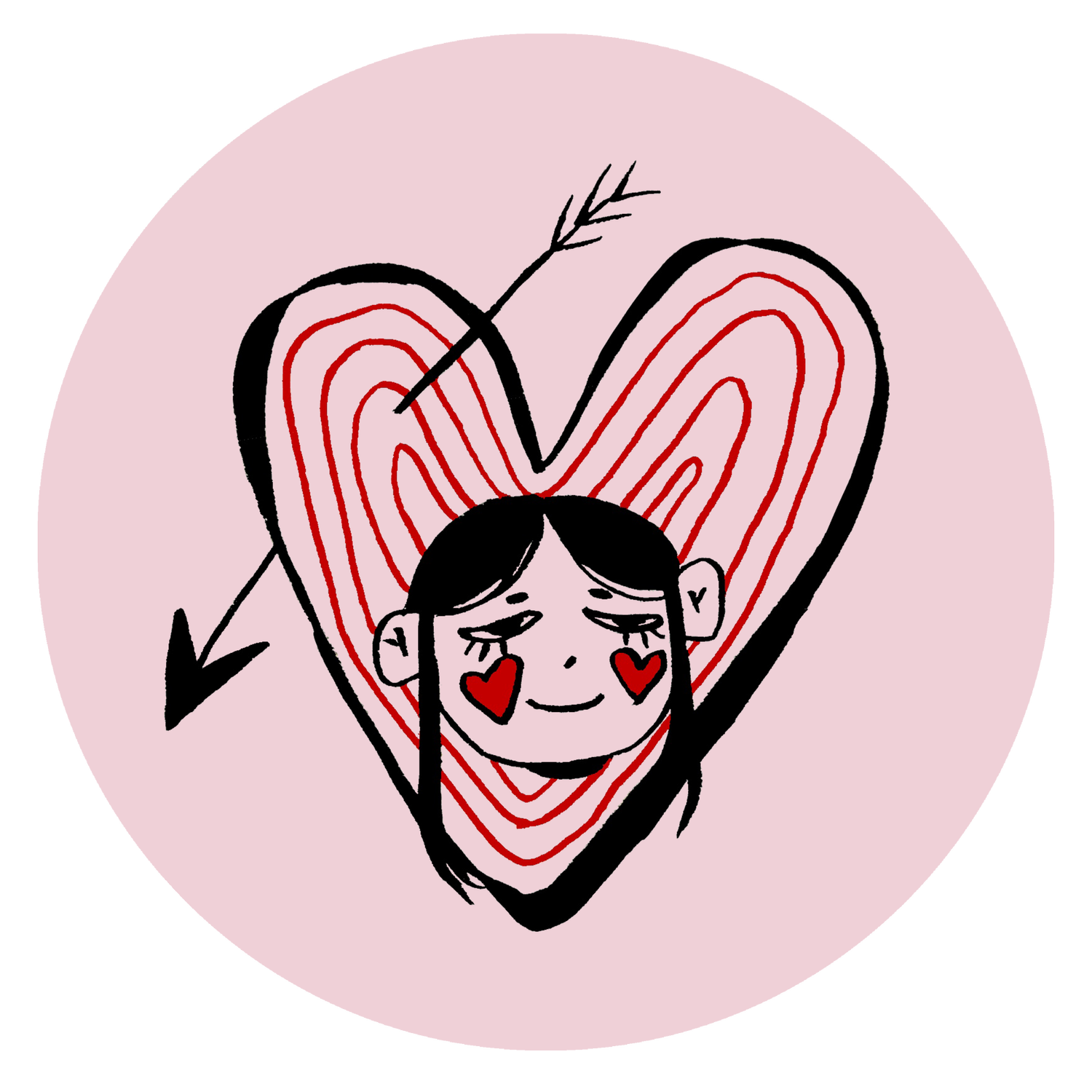deep condition
Illustration by Gina Ledor
Every Black girl who wears their hair naturally (curly, coily, kinky, etc.) has heard the question once in their life: “So why don’t you ever straighten your hair? It would look so nice!” Every Black girl who wears their hair straight has heard the question once in their life: “So why don’t you ever wear your natural hair? It would look so nice!”
When you are a “Melanin Mama,” “Brown Skinned Girl,” or whatever nickname society has come up with now for Black women, something as changeable as your hair becomes a defining point in your identity. As someone who has lived in America for sixteen years and has had plenty of hairstyles throughout each one, I know what it is like to be in the midst of finding yourself while society believes they know who you are just because you wear your hair as straight or curly.
Most of the time, I wear my natural hair, either in an afro, a twist out, or in protective styles such as box braids. But for a good 25% of the year, my hair is straight. So, on the calendar of my life, there are plenty of gold stars on the nights before my birthdays, Christmases, graduations, and picture days. These stars serve as the reminder that I have an appointment at the Dominican hair salon to get my hair straightened.
Every time I get my hair done, I go through the same routine. Since I was five, my mom would walk me into the shop with my dark brown 4c hair wrapped into two buns, an early morning glow peeking through my curls.
What are you getting done today, Mami?, a woman with pink rollers in her hair and gum snapping in her mouth would ask my mom.
Wash, deep condition, blow-dry, and flat iron. For my daughter, and she’d point to me.
Muy bonita. Come on. She’d smile and stretch out her hand.
Then I sit down in a cracked leather chair and unloosen the hair that will soon be transformed into something new, fresh, and shiny.
As I throw my hair back into the sink, the stylist squirts shampoo, conditioner, and a load of other products onto my scalp. She sprays my hair with blistering water and my roots are treated to in a spring shower. Her fingers scratch my skull, the dirt of today and the worries of yesterday shimmy out of my head and swirl into the drain.
After sitting under the humid dryer with conditioner on my hair, I wash it back out again. Then, I sit on a spinny chair in front of a mirror for the next hour and a half. “Danza Kuduro,” a song I now know by heart, plays in the salon’s speakers as a stylist detangles my hair, dragging her comb through each curl. Next comes the blow dryer. It always feels a million times hotter than the one I have in my house, almost like Mother Earth is pouring lava into my skull. I cringe every time it comes too close to my scalp. A spornette brush, which looks like a porcupine, aids the blow dryer in making my hair as straight as can be. The tag team makes steam surround my head until I can barely see my brown eyes in the mirror. Eventually, my hair becomes like freshly spun cotton candy, each section swaying to its beat.
The last tool makes its way into the stylist’s hands: a flat iron. With my hair divided into eight parts, she runs the flatiron over each piece like an iron over a wrinkled dress shirt. At this moment, “messy, out of line, and unprofessional kinky Black-lady hair” becomes “straight, pure white-lady hair.” As I walk out of the salon, it is like the world has cracked in half, and I must remember how to navigate life once again.
But I don’t mind such wreckage. The greatest gift of being Black is the versatility of our culture. I can have ten different hairstyles in a month and still look good in each one.
So, I do not “hate myself and my culture” because I straighten my hair for my birthday. And I am not “wild and messy” when I wear my natural hair for a change. I will forever have to navigate between the lines of dirty and clean. But, at the end of the day, I just want to be me. Whether I have my hair in an afro, passion twists, or as straight as the girl next door, my hair does not define me. It enhances me.
Unlike the deep conditioner I put in my hair, society tries to condition Black girls into feeling like monsters hiding under beds at night. As if we cower in the day, ashamed of ourselves and only come out in the dark to make little white girls scared. Meanwhile, our strength has been here all along. People just hate to notice it. Black women threaten the prejudiced history white America has tried so hard to uphold. So, of course we are deemed as the “others.” But our “otherness” just makes us shine harder.
Whether I am in the Dominican hair salon getting my hair straightened or at the salon of my regular stylist Nikki getting butterfly locs, I embrace change. When I was younger and the flat iron sometimes burned my scalp or touched my ears, I’d whisper to myself, “Beauty is pain. Beauty is pain.” Now I realize Beauty is whatever the hell you want it to be, baby. Beauty is you, and Beauty is me.

